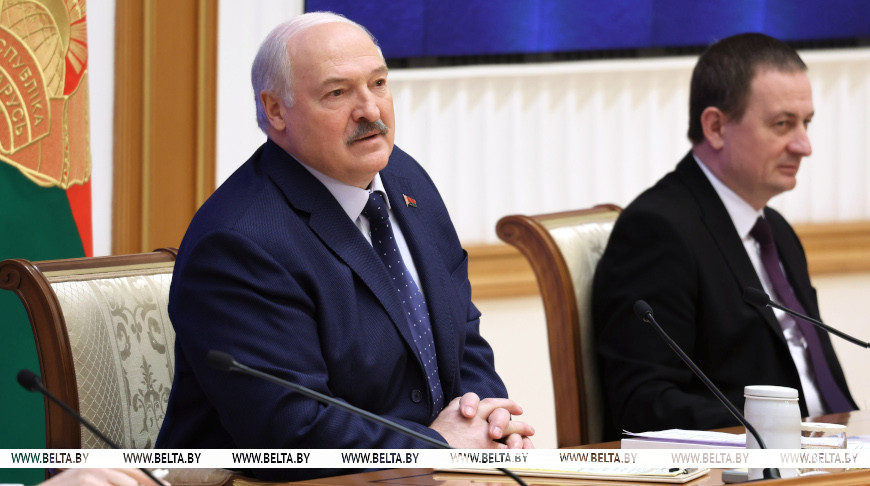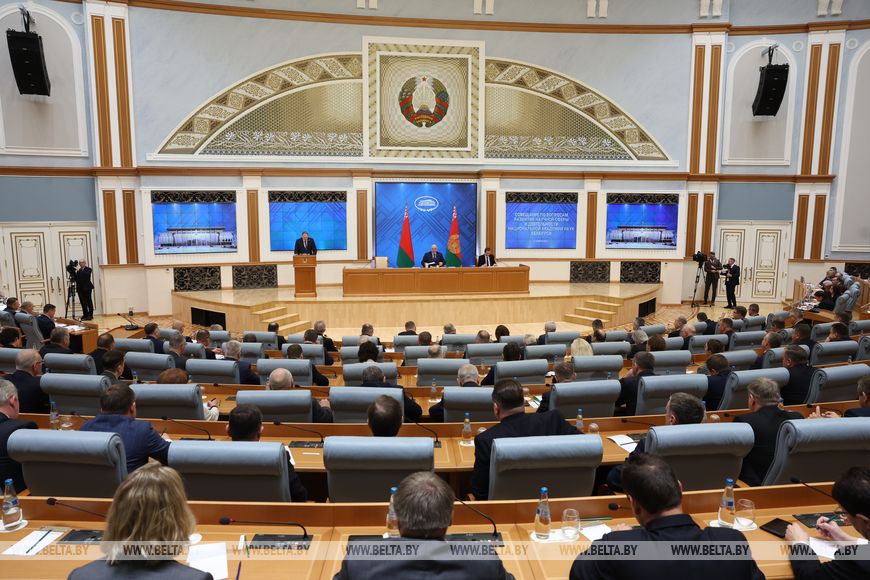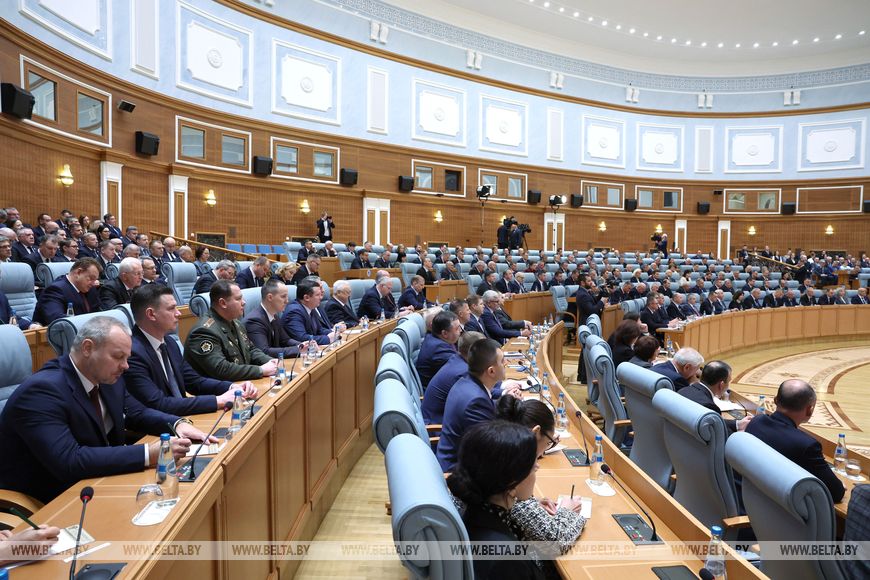
MINSK, 21 November (BelTA) – Belarusian President Aleksandr Lukashenko set out key tasks for the country’s scientific sphere during a meeting on its development on 21 November, BelTA has learned.
The first task voiced by the president was to improve mechanisms for financing science. “Here, above all, we have frequently discussed the issue of the science intensity of GDP. This refers to the proportion of spending on science in relation to GDP,” the head of state noted.
Aleksandr Lukashenko pointed out that the methodology of calculation is also important, as it ensures that everything is fair and reflects the actual situation.
The president stressed the need for concrete measures to increase the science intensity of GDP through various means. “We must aim to exceed 1%, and preferably reach 2% [of GDP],” he said.
“It is necessary to examine whether the list of areas for spending resources from innovation funds is optimal, and how the use of these funds affects the science intensity of GDP. Let me remind you that innovation means investment in something new. Is that always the case with us?” the head of state asked.

Secondly, the president noted that research is often still carried out based on the principle of “doing what we can rather than what is necessary”. “Instead of commissioning developments in Belarus, enterprises invest huge sums in importing foreign technologies and equipment, thereby becoming dependent. Yet we can do everything, even without dictatorship. “Perhaps at the beginning it is necessary [to import certain equipment]. But afterwards we must localize, and then repeat this at a higher level. That is what we should strive for,” he remarked. “At some enterprises there is even a tendency to operate without development and innovations. This should not be the case.”
To improve this situation, Aleksandr Lukashenko instructed each ministry to annually prepare a “development agenda” for their sector and share it with representatives of academic, university, and sectoral science. “If such a development meets all the specified criteria, the customer will be obliged to ensure its implementation. They will also be responsible for this. However, science must also actively offer its own innovations,” the president said.
He tasked the NASB leadership with organizing these processes by the first half of 2026. “Then we will immediately understand whether our science can meet the needs of the real sector and what we must aim for,” the head of state noted.
The third task relates to personnel issues. “It is necessary to develop a package of systemic measures to address the problem of aging and outflow of scientific personnel. When I say ‘aging,’ I do not mean age. This is not about age,” Aleksandr Lukashenko emphasized.
According to the president, the main thing for scientists is the ability “to use their brains” and to have the desire to achieve new results and advance science. In this respect, age often does not play a decisive role.

“I have already said that some of our people seem to have become scientists, defended dissertations, even tried or are trying to make discoveries, but they still bow to Western science. We certainly don't want them to leave, but if they want to work as a dishwasher, please go ahead. Perhaps something will come of this. However, where you were born is where you belong. Start working here and deliver results,” the Belarusian leader urged.
Aleksandr Lukashenko also pointed out that, as a rule, people return to their homeland at the end of their lives. “Therefore, you should think about where you will go back,” he said.
“A scientist must be supported, I agree. Discoveries and inventions do not appear overnight or in a single month. We need to think about how to provide advances and support. But only for those programs that the State Committee on Science and Technology agrees with you on, and that we truly need,” the president stressed. “We must pay for everything we need today. There is always money for that. It is just that Belarusians are not accustomed to throwing money around. We don't have extra money to waste.”
The government and the National Academy of Sciences of Belarus have been instructed to constantly monitor salary levels in science and education and prevent disparities.













